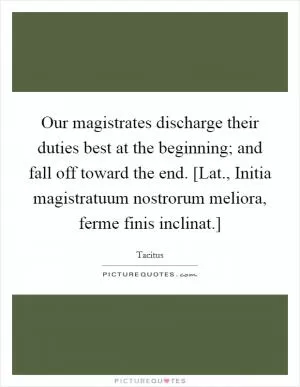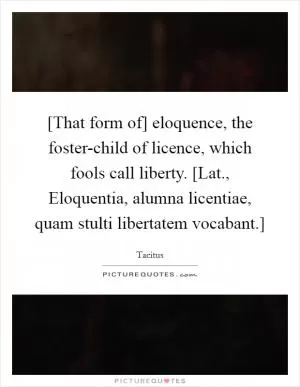There were in him candor and generosity, which, unless tempered by due moderation, lead to ruin

There were in him candor and generosity, which, unless tempered by due moderation, lead to ruin
In the context of Tacitus, the statement "There were in him candor and generosity, which, unless tempered by due moderation, lead to ruin" can be seen as a cautionary tale about the dangers of excessive honesty and generosity in the political realm. Tacitus, a Roman historian known for his sharp critiques of the Roman Empire, often highlighted the ways in which unchecked virtues could ultimately lead to downfall.Candor, or honesty, is generally seen as a positive trait in a leader. Transparency and truthfulness can build trust and credibility with the people. However, Tacitus warns that too much candor can be a liability. In the cutthroat world of politics, being too open and honest can make one vulnerable to manipulation and exploitation by more cunning and deceitful individuals. A leader who is too candid may inadvertently reveal sensitive information or make impulsive decisions that harm themselves or their constituents.
Similarly, generosity is typically viewed as a noble quality in a leader. Giving to those in need and fostering a spirit of community can create goodwill and loyalty among the populace. However, Tacitus suggests that excessive generosity can be a weakness. A leader who is too generous may be taken advantage of by opportunistic individuals seeking to exploit their kindness for personal gain. This can lead to financial ruin or political instability as resources are depleted and alliances are compromised.












 Friendship Quotes
Friendship Quotes Love Quotes
Love Quotes Life Quotes
Life Quotes Funny Quotes
Funny Quotes Motivational Quotes
Motivational Quotes Inspirational Quotes
Inspirational Quotes